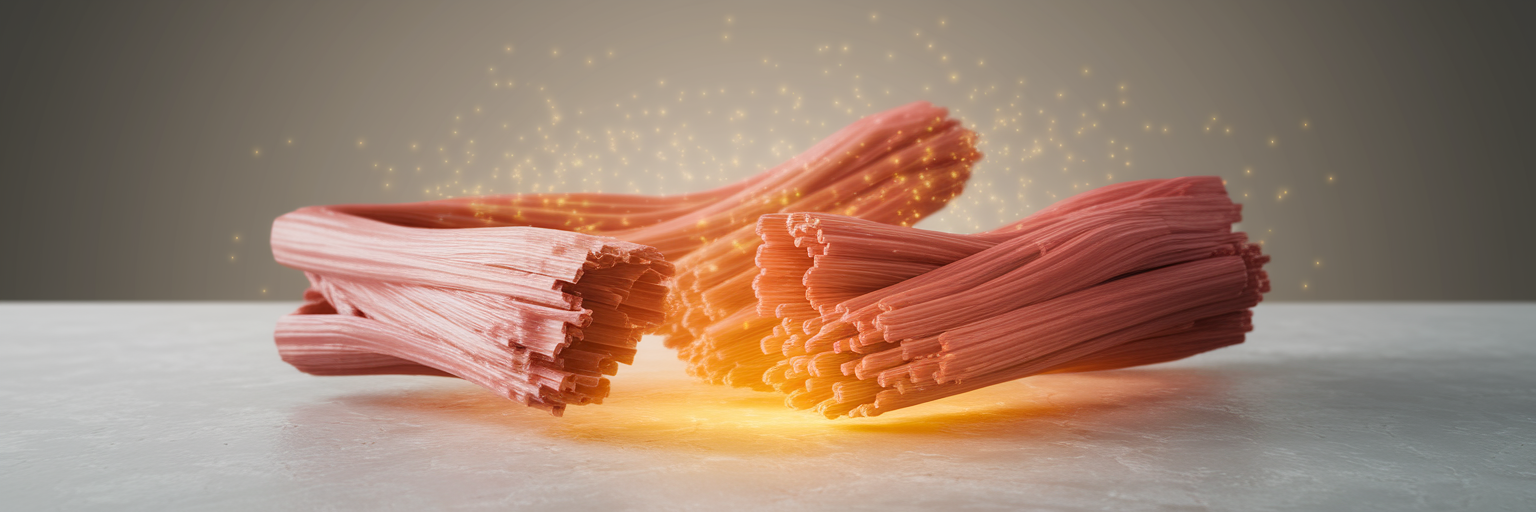Feeling the Burn After Your Workout?
We've all been there. The day after a great workout, you feel that satisfying ache in your muscles. That soreness, known as Delayed Onset Muscle Soreness (DOMS), is a sign you’ve challenged your body effectively. It’s the result of tiny micro-tears in your muscle fibers, and it tells your body it’s time to rebuild and get stronger.
This repair process is driven by inflammation. Your body sends immune cells to the site of the "damage" to clean up and kickstart recovery. While this response is completely natural and necessary for growth, too much of it can backfire. When inflammation sticks around for too long, it can lead to prolonged pain and actually slow down your return to the gym. What if you could help your body manage this process more efficiently?
The key might be in your shaker bottle. The type of protein you consume post-workout can significantly influence your body's inflammatory response. An anti-inflammatory plant protein isn't just about rebuilding muscle; it's a strategic tool to help your body recover smarter, not just harder. Let's explore how.
The Science of Post-Exercise Inflammation

To understand how to manage post-workout soreness, it helps to know what’s happening inside your muscles. Intense exercise causes what scientists call exercise-induced muscle damage (EIMD). Think of it as creating tiny, controlled tears that signal your body it's time to reinforce the structure, making it stronger for next time. This signal triggers a fascinating and precise inflammatory response.
Here’s a simplified look at the process:
- The First Responders Arrive: Your immune system immediately dispatches specialized cells to the affected muscle tissue. Their job is to assess the situation and begin cleanup.
- The Cleanup Crew Gets to Work: These cells release pro-inflammatory messengers, like cytokines IL-6 and TNF-alpha, to clear out damaged cellular debris. This is the phase that causes the noticeable swelling and soreness.
- The Repair Team Takes Over: Once the area is clear, your body releases anti-inflammatory cytokines. These messengers calm the initial response and signal the body to start the muscle repair and rebuilding phase.
It's important to distinguish between this beneficial, short-term inflammation and chronic inflammation, which can be detrimental. The goal for any active person isn't to eliminate inflammation entirely. Instead, it's about helping your body move through this natural cycle efficiently. A well-managed inflammatory response means less downtime, reduced soreness, and a quicker, more effective return to your training.
The Anti-Inflammatory Power of Plants
Here’s where it gets interesting. Plant-based proteins offer much more than just the essential amino acids for muscle repair. They come packed with a powerful arsenal of bioactive compounds that actively help manage inflammation. Unlike some animal-based proteins, which can contain higher levels of pro-inflammatory compounds like arachidonic acid, plant sources bring a unique set of benefits to the table.
Plants are rich in antioxidants and phytochemicals, which are natural compounds that combat oxidative stress. Intense exercise generates free radicals, unstable molecules that can contribute to inflammation and cellular damage. The antioxidants found in plants help neutralize these free radicals, easing the burden on your body.
Let's look at some specific examples. Hemp protein is a fantastic source of gamma-linolenic acid (GLA), a type of omega-6 fatty acid that has been shown to have strong anti-inflammatory properties. Pea protein contains beneficial compounds like isoflavones, which also help modulate the body's inflammatory pathways. As a study published in Frontiers in Nutrition highlights, these unique compounds are a key reason why plant proteins are so effective at supporting recovery. It’s not just one ingredient doing the work; it’s the synergy of fiber, polyphenols, and other phytochemicals that supports a healthy plant based workout recovery.
How Vegan Proteins Directly Aid Muscle Repair

So, how does managing inflammation translate to better gains? When your body's inflammatory response is balanced, you experience less swelling and soreness. This means less downtime between sessions and a more comfortable recovery period. Vegan proteins help achieve this through what is known as an immunomodulatory effect, a fancy term for helping to balance your immune system's response.
Research from the Journal of the International Society of Sports Nutrition explains that compounds in plant proteins can help the body regulate its inflammatory messengers more effectively. They can help dial down the pro-inflammatory signals when their job is done and ramp up the anti-inflammatory ones to accelerate the repair phase. This dual-action approach is what makes vegan protein for muscle recovery so powerful.
Of course, some people wonder if plant proteins are "complete." The great news is that by combining different plant sources, such as pea and rice protein, you get a robust and complete amino acid profile that is highly effective for muscle protein synthesis. These blends provide all the building blocks your muscles need to repair and grow, while simultaneously helping to manage the inflammation that can slow you down. If you're curious about what options are out there, you can explore some of the best protein powders we've reviewed to find a blend that works for you.
| Recovery Aspect | How Vegan Protein Helps | Key Compounds Involved |
|---|---|---|
| Muscle Repair & Growth | Provides a complete profile of essential amino acids to rebuild muscle fibers. | Amino Acids (Leucine, Isoleucine, Valine) |
| Inflammation Management | Helps balance the body's inflammatory response to reduce excessive soreness and swelling. | Antioxidants, Polyphenols, GLA, Isoflavones |
| Oxidative Stress Reduction | Neutralizes free radicals generated during intense exercise that contribute to inflammation. | Phytochemicals, Vitamin C & E (in whole food sources) |
| Gut Health Support | Nourishes beneficial gut bacteria that produce anti-inflammatory compounds. | Prebiotic Fiber |
The Gut-Health Connection to Recovery
There's another, often-overlooked, player in your recovery game: your gut. The trillions of bacteria living in your digestive system, known as your gut microbiome, are critical regulators of your immune system. Intense physical stress can sometimes disrupt this delicate ecosystem, which can in turn affect inflammation levels throughout your body.
This is another area where plant-based proteins shine. They are naturally rich in fiber, which acts as a prebiotic—food for your beneficial gut bacteria. A well-fed and diverse microbiome thrives, producing powerful metabolites called short-chain fatty acids (SCFAs). These SCFAs enter your bloodstream and have systemic anti-inflammatory effects, providing another layer of support to help you reduce muscle soreness naturally.
Choosing a plant-based protein is a holistic decision. You are not just feeding your muscles; you are cultivating a healthier gut environment. This creates a positive feedback loop where a happy gut helps manage inflammation, leading to better recovery and improved overall resilience. To learn more about holistic wellness, feel free to explore more insights on our blog.
Choosing the Right Vegan Protein Powder
With so many options available, finding the right vegan protein can feel overwhelming. Here are a few friendly tips to help you choose a high-quality product that will support your recovery goals:
- Look for a clean label. Opt for products that are organic, non-GMO, and free from artificial sweeteners, gums, and unnecessary fillers. The fewer ingredients, the better.
- Prioritize protein blends. Powders that combine sources like pea and rice or include hemp and sacha inchi ensure you’re getting a complete amino acid profile for optimal muscle repair.
- Consider fortified powders. Some of the best vegan protein for athletes includes added anti-inflammatory superfoods like turmeric, ginger, or tart cherry for an extra recovery boost. For ideas on how to incorporate them, you can get inspired with these easy vegan protein recipes.
Ready to find your perfect plant-powered recovery partner? A clean, effective protein can make all the difference. We recommend exploring our delicious and thoughtfully formulated Chocolate Vegan Protein to get started.
Final Thoughts on Your Recovery Journey
Managing post-workout inflammation is a critical part of any smart training plan, and vegan protein powders are a powerful, natural tool to help you do it. By providing the essential building blocks for muscle repair while also delivering anti-inflammatory compounds, they offer a comprehensive approach to recovery.
Making the switch to a plant-based protein is more than just a dietary choice; it's a strategic move to enhance your performance, reduce soreness, and support your long-term health. Found this helpful? Share it with a workout buddy who's ready to upgrade their recovery game!



